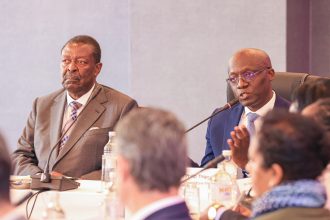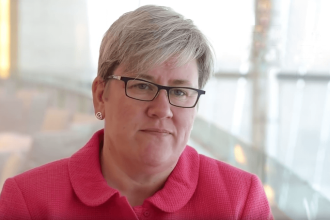By Lenah Bosibori
Nairobi, Kenya will host the CGIAR Science Week 2025 from April 7-12, bringing together global experts, researchers, and policymakers to showcase groundbreaking agricultural innovations.
Organized in partnership with the Kenya Agricultural and Livestock Research Organization (KALRO), the event aims to highlight advancements in sustainable farming, climate-resilient technologies, and food security solutions.
Speaking during a media briefing in Nairobi Dr. Ismahane Elouafi, Executive Managing Director of CGIAR said that CGIAR Science Week 2025 is a landmark event bringing together the world’s leading scientists, decision-makers, and advocates in agriculture, climate, and health.
“The gathering aims to realize a shared vision of enhancing food production through science and innovation, reducing malnutrition, and protecting biodiversity in land, water, and food systems,” said Dr Elouafi
This flagship gathering will bring together leading scientists, policymakers, and stakeholders at the intersection of agriculture, climate, and health to drive action toward a sustainable global food system.
Rising global temperatures, unpredictable rainfall, and increasing food insecurity underscore the need for scientific breakthroughs that can safeguard food, land, and water systems while supporting smallholder farmers and vulnerable communities.
“Science and innovation have always been the backbone of human progress. Today, as we navigate a complex web of global challenges from climate change to food insecurity, we need bold, collective action,” adds Elouafi,
The global challenge: A call for science-driven solutions with nearly 350 million people worldwide facing extreme hunger, and climate change posing an increasing threat to food production, the urgency for transformative agricultural innovations has never been greater
During the science week, CGIAR will also launch a Research Portfolio, a six-year program of work aimed at tackling some of the most pressing agricultural challenges.
“A key highlight of the event will be the official launch of CGIAR’s 2025-2030 Research Portfolio, a six-year program of work aimed at tackling some of the most pressing agricultural and environmental challenges,” reiterated Elouafi,
The portfolio is designed to: Boost innovation by integrating cutting-edge research from CGIAR’s global network of research centers. Enhance climate resilience by developing climate-smart agricultural solutions that protect farmers from extreme weather conditions.
Improve food security and nutrition through advancements in sustainable crop production and food systems. Empower rural farmers with technologies and strategies to increase productivity while reducing environmental impact.
In addition, the portfolio will also strengthen global partnerships by promoting collaboration among governments, research institutions, and the private sector. The initiative, expected to mobilize between $6 billion and $12 billion, will support research efforts in over 100 countries and engage 3,000 local partners, with a strong emphasis on Africa’s agricultural transformation.
“Kenya is honored to host this key event, a platform that will not only unveil groundbreaking scientific innovations but also promote strategic collaborations to drive meaningful and lasting impact,” said Dr. Eliud Kireger, Director General of KALRO.
“For smallholder farmers across Africa and beyond, science remains the catalyst for unlocking food security, building resilience, and driving economic prosperity.”
Why CGIAR Science Week 2025 matters
The event will bring together around 3,000 in person people from across 100 nationalities, it will feature high-level discussions, expert panels, and interactive showcases demonstrating how research and technology are shaping the future of agriculture.
Attendees will engage with leading scientists, policymakers, private sector leaders, and farmer organizations to explore solutions that bridge the gap between scientific research and real-world agricultural practices.
Key focus areas include: The role of AI and Big Data in agricultural decision-making Innovations in climate-smart crop breeding Strategies to support youth and women in agriculture Scaling up nature-based solutions for sustainable farming




